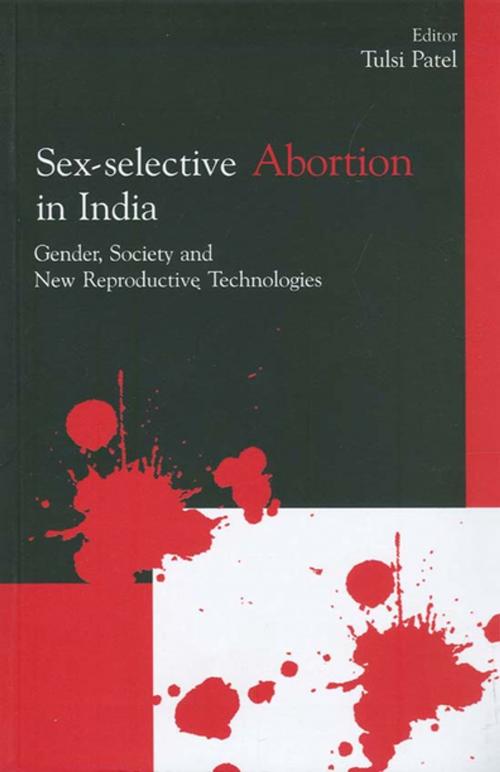Sex-Selective Abortion in India
Gender, Society and New Reproductive Technologies
Nonfiction, Health & Well Being, Medical, Reference, Public Health| Author: | ISBN: | 9789352800643 | |
| Publisher: | SAGE Publications | Publication: | December 12, 2006 |
| Imprint: | Sage Publications Pvt. Ltd | Language: | English |
| Author: | |
| ISBN: | 9789352800643 |
| Publisher: | SAGE Publications |
| Publication: | December 12, 2006 |
| Imprint: | Sage Publications Pvt. Ltd |
| Language: | English |
This collection of 11 essays unravels the reasons for the depleting child sex ratio in India. The contributors, all distinguished demographers and social scientists, describe the political economy of sentiments and sexual mores that leads parents to kill unborn daughters.
The contributors examine ways in which reproductive technologies, such as, the ultrasound, are misused at the family, community and state levels. In this alarming scenario, the volume highlights both the participation and defiance of the various authorities dealing with reproduction, health services and the problem of female foeticide. Engagement with the state is analysed in the light of colonial policies, the law of adoption, health policies, family planning programmes and the Pre-natal Diagnostic Techniques (PNDT) Act of 1994 and its amendment in 2002.
Applying a multidisciplinary perspective to the problem of fewer girls being born in India, this volume addresses this critical issue with the help of qualitative and quantitative data, both historical and contemporary.
This collection of 11 essays unravels the reasons for the depleting child sex ratio in India. The contributors, all distinguished demographers and social scientists, describe the political economy of sentiments and sexual mores that leads parents to kill unborn daughters.
The contributors examine ways in which reproductive technologies, such as, the ultrasound, are misused at the family, community and state levels. In this alarming scenario, the volume highlights both the participation and defiance of the various authorities dealing with reproduction, health services and the problem of female foeticide. Engagement with the state is analysed in the light of colonial policies, the law of adoption, health policies, family planning programmes and the Pre-natal Diagnostic Techniques (PNDT) Act of 1994 and its amendment in 2002.
Applying a multidisciplinary perspective to the problem of fewer girls being born in India, this volume addresses this critical issue with the help of qualitative and quantitative data, both historical and contemporary.















